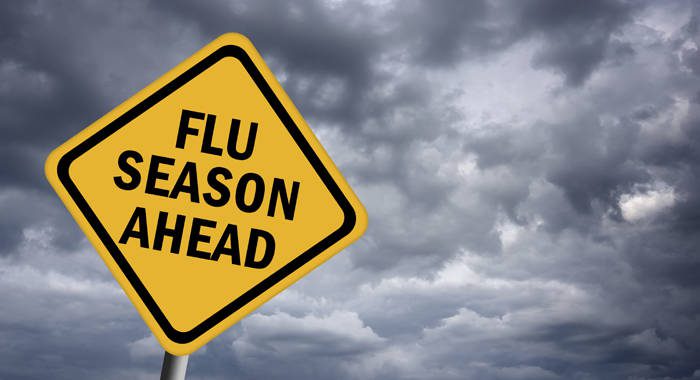Seasonal influenza affects many thousands of people in the Caribbean each year, and as the 2015 season approaches, the Caribbean Public Health Agency (CARPHA) is urging persons to practice good personal hygiene to reduce the risk of transmission of influenza and other respiratory viruses.
Executive Director of CARPHA, Dr. C. James Hospedales, says that the “primary form of influenza transmission is through interpersonal contact,” adding, “given elevated flu activity in the United States, combined with the high travel season to the Caribbean, it is important that persons take the necessary steps now, to protect themselves and their loved ones from the flu.”
CARPHA is advising that persons practice good hygiene measures, which include:
- Covering your mouth with a tissue or handkerchief, or using your elbow, when sneezing or coughing
- Safely disposing of used tissues
- Washing your hands with soap and water after coughing and sneezing and before and after meal preparation, eating and using the toilets.
However, the most effective way to prevent the disease or severe outcomes from the illness is vaccination.
Safe and effective vaccines have been available and used for more than 60 years. Among healthy adults, influenza vaccine can prevent 70 to 90 per cent of influenza-specific illness. Among the elderly, the vaccine reduces severe illnesses and complications by up to 60 per cent, and deaths by 80 per cent.
Vaccination is especially important for people at higher risk of serious influenza complications, and for people who live with or care for high-risk individuals.
Seasonal influenza is characterized by a sudden onset of high fever, cough (usually dry), headache, muscle and joint pain, severe malaise (feeling unwell), sore throat and runny nose. Most people recover from fever and other symptoms within a week without requiring medical attention. But influenza can cause severe illness or death in people at high risk.
The time from infection to illness, known as the incubation period, is about two days. Illnesses can result in hospitalisations and deaths mainly among high-risk groups (the very young, elderly or chronically ill). Worldwide, these annual epidemics result in about three to five million cases of severe illness, and about 250,000 to 500,000 deaths. Most deaths associated with influenza occur among people age 65 or older.







Great information but “…ahead of flu season” When does the flu season begin? It was not stated in the article. I always thought that the flu season ran from October to April/May.